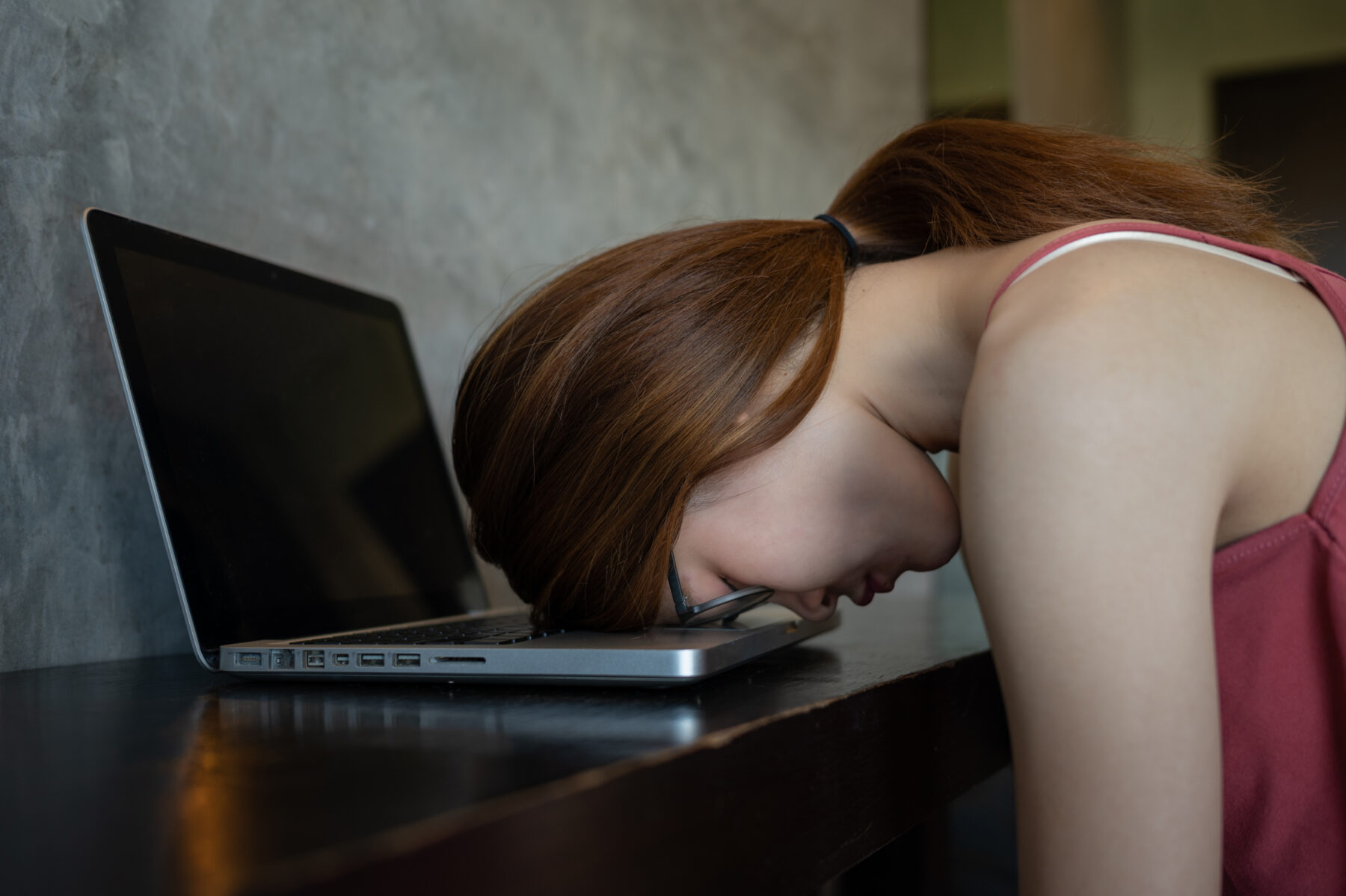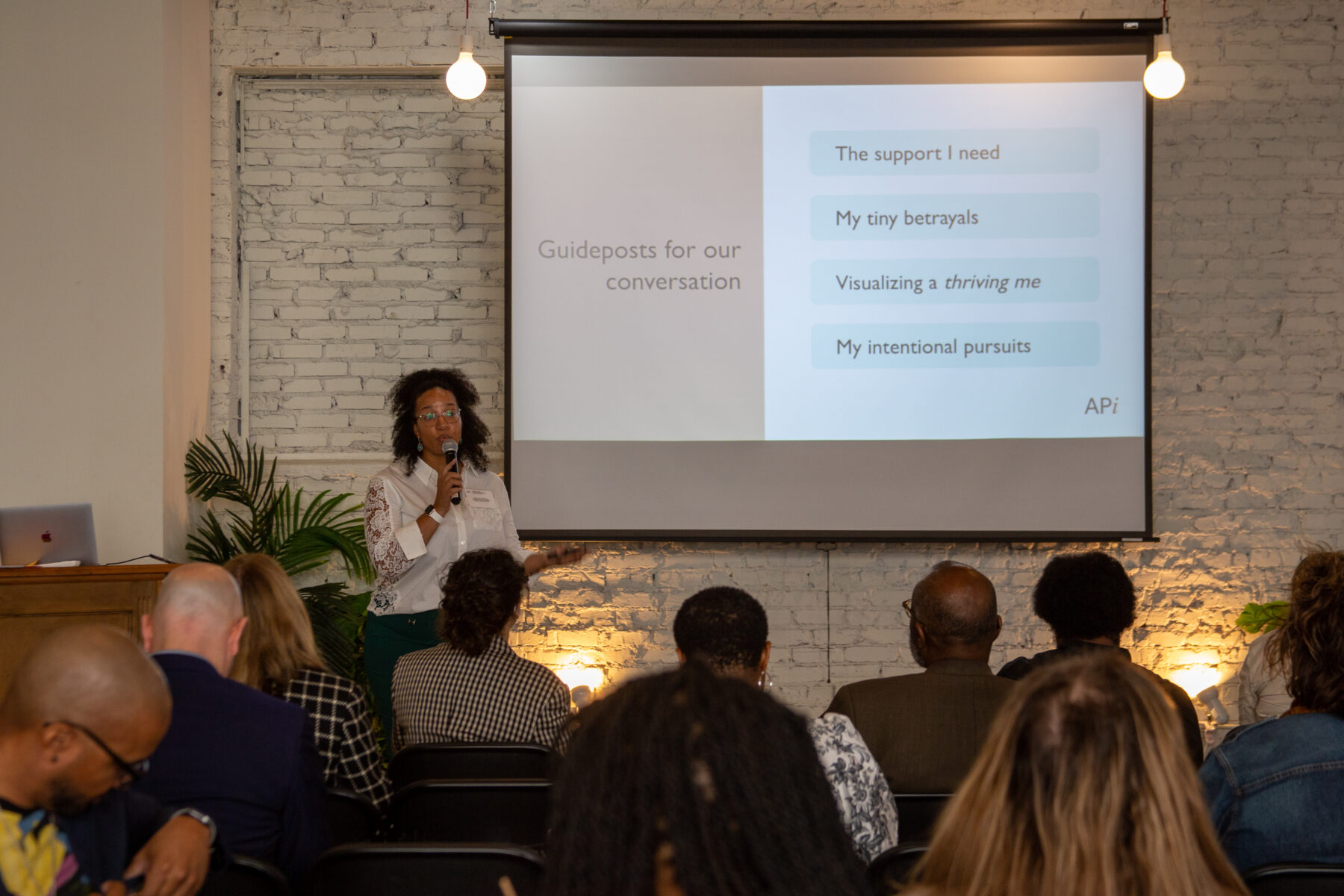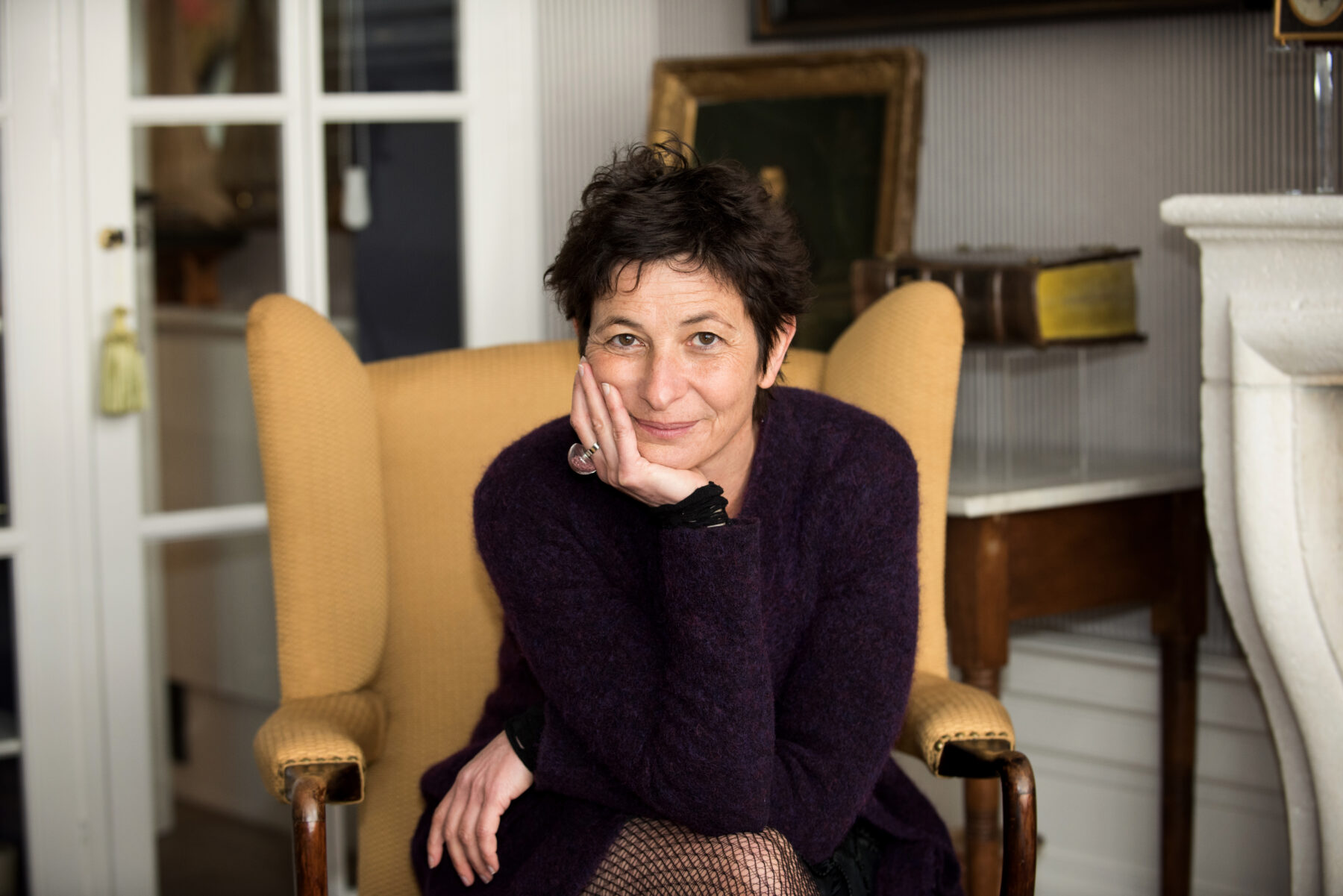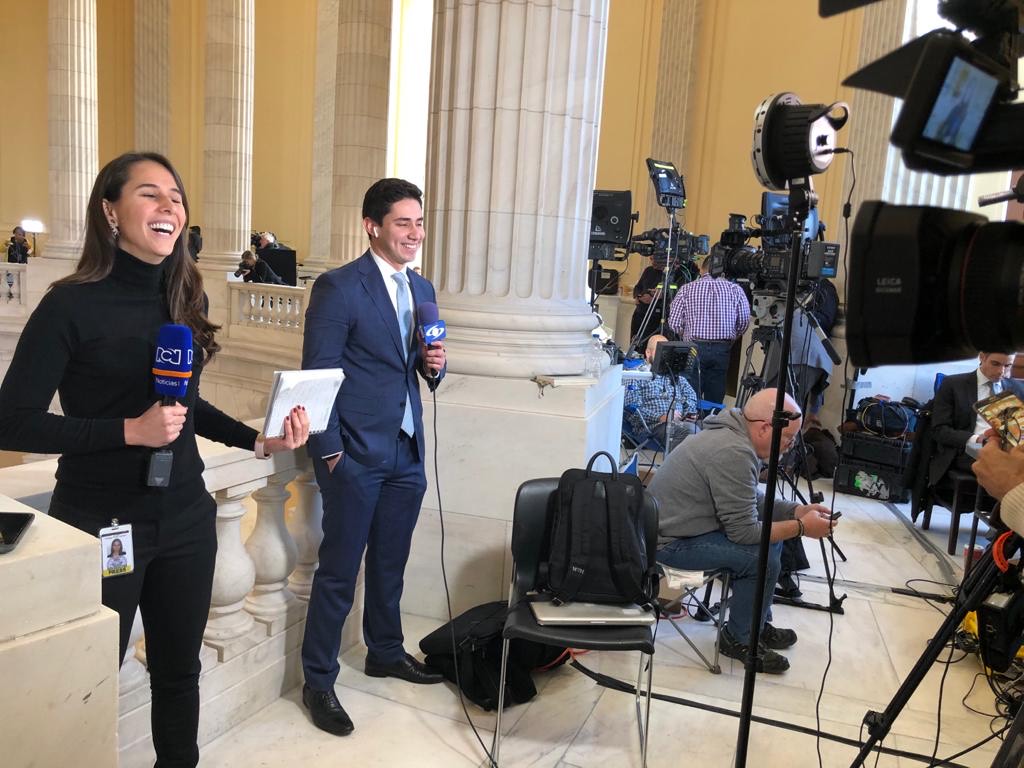
Back in 2019, I had a glamorous job as an entertainment editor, attending movie premieres and regularly interviewing celebrities on the red carpet. But at home, I had trouble sleeping, felt exhausted all the time and was experiencing high levels of inflammation.
My doctor tried to find the medical cause but eventually said, “I think you need to change jobs. This one is burning you out.”
Unfortunately, I’m one of many journalists to come to that realization — the Center for Innovation and Sustainability in Local Media recently found that 70% of local journalists experienced work-related burnout. Over the years, I’ve realized what helps best is consulting resources created by reporters who have been through it.
“Journalists are naturally cynical people, and there is a healthy level of cynicism, but there’s also an unhealthy burnout level of cynicism,” said Samantha Ragland, the American Press Institute’s VP of journalism programs. “And that puts up a wall between how a journalist can learn and from whom.”
Ragland, who has developed and uses a curriculum for burned-out journalists, said one of the things that makes her sessions successful is that she taps into her experience as a journalist to engage her stressed-out colleagues. And she is not the only one helping fellow journalists with their burnout. Here are a few who have developed projects to ease the stress.
Short assignments from The American Press Institute
At the height of the pandemic in 2020, Ragland was using her editorial experience managing Florida newsrooms and her background as an English professor to develop the Poynter Institute’s mental health and well-being curriculum. She was passionate about the work, but there was just one problem: Ragland was also feeling burned out.
“I really thought that I was immune to burnout and that’s one of the first things that I share when I do burnout training for journalists,” she said. “Nobody is immune to this workplace hazard. It can happen literally to anyone at any time, and it will look different for everyone.”

From there, Ragland shifted her focus to how journalists and newsrooms repair burnout and take successful steps to heal. Now at the American Press Institute, she has developed the Mental Health Reset, a continuation of the Leadership Reset series, which explores how you use your mental energy. Both are filled with assignments to guide journalists toward healthier habits, like mindfully pacing your work week and creating a “user’s manual” to communicate how you like to work with your team.
Ragland also runs API’s leadership summits and free self-reflective sessions for stressed journalists and offers free one-on-one coaching through Digital Women Leaders. She says that journalists already use a lot of the skills they need to heal burnout — but they don’t use them on themselves.
“I’ve found that journalists across the world have the skills to be healthier individuals, because it is natural for them to execute these skills for their sources,” she said. “They are naturally empathetic, they are disarming, they are curious. If they turned those skills onto themselves and what they need, they would largely be healthier individuals.”
Trainings from The Self-Investigation
Co-founded by Pulitzer Prize-winning journalist Mar Cabra, media advisor Kim Brice and journalist Aldara Martitegui in 2020, The Self-Investigation supports and trains journalists working at the frontlines to prioritize their mental health. The organization has a large roster of services for media companies, individuals, unions and schools, including in-person and virtual training, coaching and a multi-day well-being education program.
“I’ve been really heartened by the fact that after our classic one-and-a-half hour ‘how to avoid burnout’ sessions that nearly everyone in the room can recognize that this is something relevant to them and concerns them,” Brice said.

Within the first year, Brice worked with three top global investigative journalists grappling with burnout — and they were all considering leaving the industry while at the top of their field. “I don’t want any more good journalists to leave the profession unnecessarily,” she said. “That’s my big motivator, especially now more than ever.”
The Self-Investigation also offers self-paced online video courses in English, Spanish and Arabic on topics such as “How to be a healthy journalist in an always-on culture,” which offers advice like how to stay focused and maintain health boundaries.
Brice advises journalists who realize they may be burned out to talk to people they trust, see their doctor and if they feel safe enough, tell their manager.
“I encourage people to not stay in your hole alone,” she said. “If you’re not well and if you feel like there really needs to be a change, there are definitely others around you who are feeling the same and who want to promote change. It’s creating that sense of reminding yourself that you have a sense of agency no matter what, even if it’s in a small way.”
Podcast from The Awakened Journalist
During Donald Trump’s presidency, Emiliana Molina Fajardo worked her way up from multimedia journalist to anchor at Entravision, eventually becoming a White House correspondent at a Colombian cable news channel in 2018. After two years of covering the then-president, Molina started to feel burned out.
“Breaking news happened every minute,” she said. “It was just a very high-stress level job all the time, and there’s only so much your nervous system can take.”

In February 2020, Molina took a job at a San Diego TV station, where the slower pace made her realize how burned out she was feeling. After experiencing panic attacks and anxiety, she left journalism later that year to start The Awakened Journalist, a bilingual video podcast available on Spotify and YouTube.
Molina started it from her bedroom, recording interviews with 40 journalists via Zoom about their careers and challenges on the job, like emotional stress. Today, she chats with former political officials and CEOs as well as journalists on mental health topics ranging from personal growth to finding meaning in one’s grief.
“I’m touching on very important topics in a way that’s just very supportive, and that can truly support the improvement of the news industry,” she said. “Not just for the business itself, but also for the journalists that are very much burned out, tired and overwhelmed.”
Book by Jennifer Moss, ‘The Burnout Epidemic’
Author, journalist and international speaker Jennifer Moss has studied mindset psychology since 2009. She became interested in burnout when she faced it while co-founding a mental health app.
“I was in this constant drive, a feast-or-famine entrepreneurial mindset,” she said. “That was tragic because it changed my relationships with my family, with my friends. I just wasn’t the best mom. … I was so exhausted. I wasn’t eating. I wasn’t sleeping.”
Moss began studying burnout, publishing “Burnout is about your workplace, not your people,” in the Harvard Business Review in 2019. The piece, which highlighted how burnout starts and how companies are managed, resonated with a lot of people and led to her book, “The Burnout Epidemic,” published in 2021.
“We need to label it so that organizations can start to be responsible for it,” Moss said. “My book is for people that want to enact change — that doesn’t necessarily mean they have to be a manager.”
A year later, Moss adapted the book into a LinkedIn Learning course called “Prevent Team Burnout as a Manager,” which also provides tips to non-managers. The virtual videos address the root causes of burnout — including lack of community, control and fairness — and burnout prevention strategies so managers can help their employees by encouraging them to speak up and manage their workload.
“I don’t think that it’s a lifestyle that’s going to change everything,” Moss said, referring to the idea that self-care habits like keeping a journal can fix burnout alone. “You can do what you can to be healthier and manage your mental health, but to really solve for burnout is more of an ecosystem problem.”


